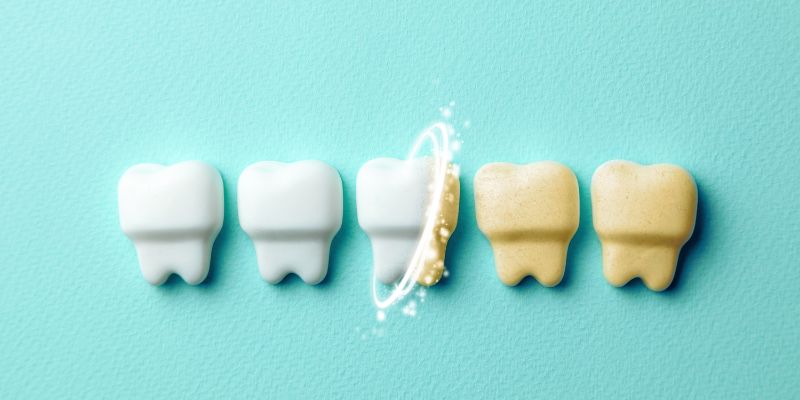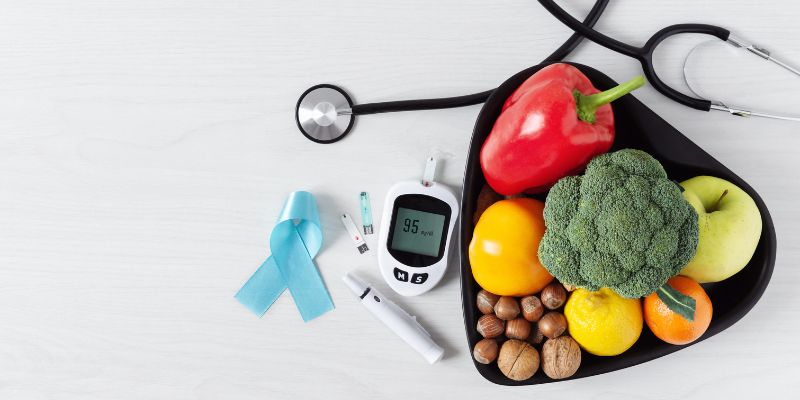What Helps You Prevent Macular Degeneration: A Complete Guide
Many people, mostly older adults, lose sight because of macular degeneration. Fortunately, several ways can help avoid this disorder. Implementing particular lifestyle modifications and dietary guidelines will better protect your eyes and lower the risk of macular degeneration.
The best preventative steps a good diet, quitting smoking, and frequent eye exams will be discussed in this article. These simple techniques will help protect your vision for many years.
10 Best Ways To Prevent Macular Degeneration
Below, you can find the ten best ways to prevent macular degeneration and protect your vision:
Maintain a Healthy Diet
Eye health depends on a well-balanced diet high in nutrients. Sharp eyesight comes from the little spot in the retina called the macula. A diet strong in lutein, zeaxanthin, and antioxidants helps shield the macula from oxidative damage. Rich in nutrients are dark leafy greens such as kale and spinach. Moreover, eating omega-3 fatty acids in seafood like salmon can lower macular degeneration risk. Reducing processed and high-fat diet consumption is crucial since they might hasten deterioration. Including fruits, nuts, and seeds will also help to encourage improved eye health in your meals.
Take Supplements
Supplements might be a great addition if your diet lacks vitamins and minerals from food alone. Vitamins C, E, zinc, and copper supplements have been shown to help stop macular degeneration from progressing. Early in macular degeneration, the Age-Related Eye Disease Study (AREDS) indicates these nutrients may be particularly helpful. Before beginning any new supplement program, it's usually best to see your doctor. Including lutein and zeaxanthin supplements will improve your eye condition even more and help avoid macular degeneration.
Wear Sunglasses
By blocking 100% UV light, sunglasses help shield your eyes from damaging sunlight, preventing macular degeneration. Over time, extended UV light exposure without appropriate eye protection can cause retina damage. They are An outstanding choice as polarized sunglasses filter UV rays and lower glare. Choose sunglasses with UVA and UVB protection. Your eye health can be much improved with a modest expenditure. Wear sunglasses anytime outside, especially on hazy days when UV rays can still pass through.
Quit Smoking
Among the major risk factors for macular degeneration development is smoking. The toxins in cigarettes might harm the blood vessels in the eyes, which accelerates macula degradation. Studies reveal that smokers have up to four times higher risk of macular degeneration than non-smoking people. If you smoke, your risk will be much reduced by stopping. Once you give up smoking, your eyes start to mend, and it's never too late to gain from it. If you need help to stop smoking, talk to a doctor about programs for this purpose. Your eyes will appreciate you, as will the rest of your body.
Maintain a Healthy Weight
Macular degeneration risk rises with obesity or overweight. Excess body fat can aggravate inflammation and oxidative stress, both of which help to damage the eyes. Furthermore, connected to obesity are various disorders that can compromise eye health, such as diabetes and high blood pressure. Frequent exercise and a balanced diet will help you keep a good weight, reducing your chance of visual issues. Most days of the week, try for at least thirty minutes of moderate activity. Along with a nutritious diet, physical activity supports general health and can help to keep your eyes in good form.
Manage Chronic Conditions
Preventing macular degeneration requires control of chronic diseases such as diabetes and high blood pressure. Both of these disorders can compromise the blood vessels in the eyes, therefore impairing vision. Diabetes can produce diabetic retinopathy, which raises the risk of macular degeneration; high blood pressure can harm the blood vessels in the retina. Regular checkups can help you monitor and control these disorders, transforming your life. With changes in diet, medicine, and lifestyle, control your blood pressure and blood sugar. Over time, this will assist in preserving your eyesight.
Get Regular Eye Exams
Early macular degeneration identification depends on regular eye exams. Before you even experience symptoms, an eye specialist can identify the disorder's early stages. Early identification translates into early intervention, which can stop or slow down macular degeneration's spread. To view the retina better and search for any anomalies, your eye specialist might advise dilating your pupils. More frequent eye exams could be required for people at greater risk, such as elderly persons or those with family histories of macular degeneration. One easy yet powerful approach to preserving your vision is with these visits.
Eat More Fish
Fish are good for eye health, especially those high in omega-3 fatty acids. Omega-3s guard the blood vessels in your eyes and help lower inflammation. According to research, regular fish eaters have a reduced incidence of macular degeneration. Fish's good fats also boost general health and help to improve vision. Eat fish at least twice a week. Omega-3 pills are a great substitute for fish. If you dislike them, ensure you're receiving enough of this crucial vitamin.
Limit Screen Time
Extended view of digital screens might strain your eyes and raise the risk of macular degeneration among other eye diseases. Over time, the blue light coming from displays can harm the retina. According to the 20-20-20 rule, to guard your eyes. On your gadgets, consider using blue light filters to lower the blue light level reaching your eyes. Additionally, lessening eye strain and safeguarding your vision are frequent screen breaks from which to ensure appropriate illumination.

Stay Hydrated
Maintaining hydration is often neglected in eye health. Enough water ensures your eyes remain moisturized and operate as they should. Dry eyes and discomfort brought on by dehydration can help explain long-term eye problems, including macular degeneration. If you live in a hot area or spend a lot of time in air-conditioned surroundings, which can dry out your eyes, ensure you sip plenty of water daily. Maintaining your body's hydration promotes general health, including eye condition, and is an easy approach to lower vision risk.
Conclusion:
Preventing macular degeneration requires a proactive strategy, from a good diet to appropriate eye protection. Changing your lifestyle will help you preserve your vision and lower your risk of developing this frequent eye problem. Eating more fish, controlling chronic diseases, or stopping smoking can help preserve your eyesight.













